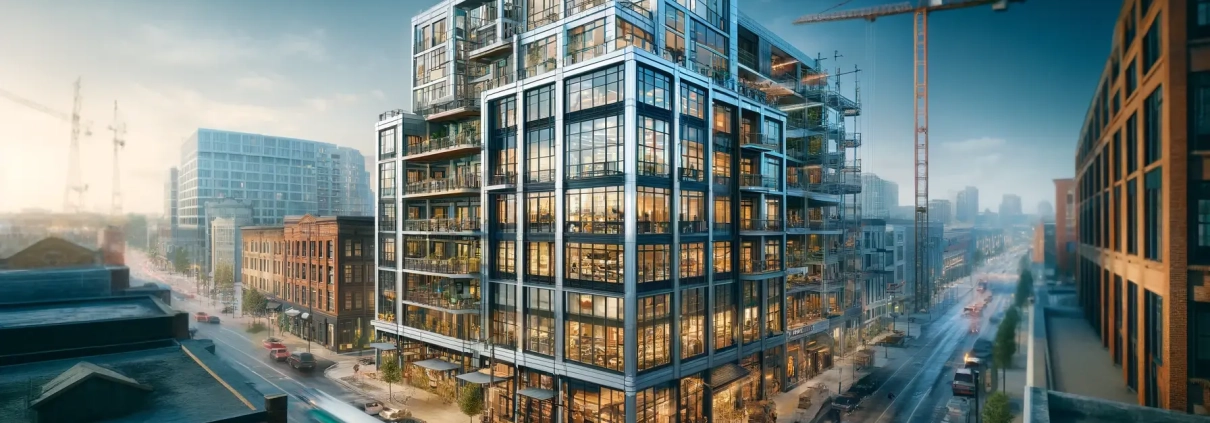Adaptive Reuse
A repositioning strategy in real estate whereby the investor converts the use and/or design of an existing building into something new. Typical scenarios include the conversion of industrial building, schools and churches into other building types such as residences, museums or art galleries.
Putting ‘Adaptive Reuse’ in Context
Scenario: Metro Property Developers Inc., spearheaded by Project Lead Jordan Smith, sets out to transform a relatively new but underutilized office building, reflecting the stark impact of the COVID-19 pandemic on commercial real estate. Situated in the urban core of the downtown district, the property, known as “Metro Lofts & Shops,” offers a prime opportunity for strategic redevelopment.
The Property: This 150,000 square foot building, standing on a 2.5-acre lot, was constructed just 15 years ago. Acquired for $12 million—a significant markdown due to a 60% vacancy rate resulting from shifts toward remote work—the building’s modern features and prime location made it an ideal candidate for adaptive reuse.
Redevelopment Process: The conversion project aims to repurpose the structure into a mixed-use development, featuring 120 multifamily units and 30,000 square feet of retail space on the ground floor. The plan includes high-quality residential offerings targeted at professionals and small families who value urban living close to amenities and workplace options, bolstering the area’s appeal and vibrancy.
Financial Overview: Redevelopment costs are estimated at $20 million, covering extensive renovations to adapt office spaces to residential use, aesthetic enhancements to the building’s facade, and the creation and outfitting of retail spaces. Post-development, the projected annual Net Operating Income (NOI) is expected to be around $3 million, with residential rents at $1,500 per month and retail leases at $35 per square foot.
Strategic Benefits: This project not only revitalizes a modern but underused building, it also leverages the existing infrastructure to meet current market demands. The adaptive reuse of “Metro Lofts & Shops” demonstrates a proactive response to the evolving work-life landscape, promoting sustainable urban living and contributing positively to the local economy.
Conclusion: “Metro Lofts & Shops” exemplifies the transformative potential of adaptive reuse in addressing both the immediate impacts of global disruptions like the pandemic and the longer-term trends towards mixed-use developments. The project highlights how strategic real estate investments can revitalize properties, enhance investor returns, and serve community needs.
Click here to get this CRE Glossary in an eBook (PDF) format.

